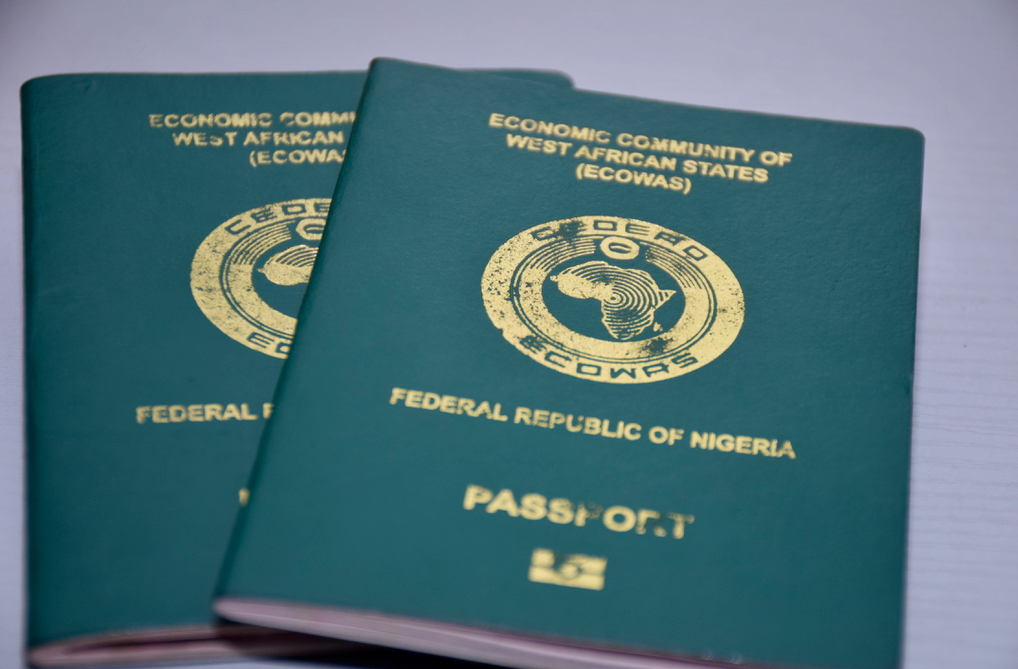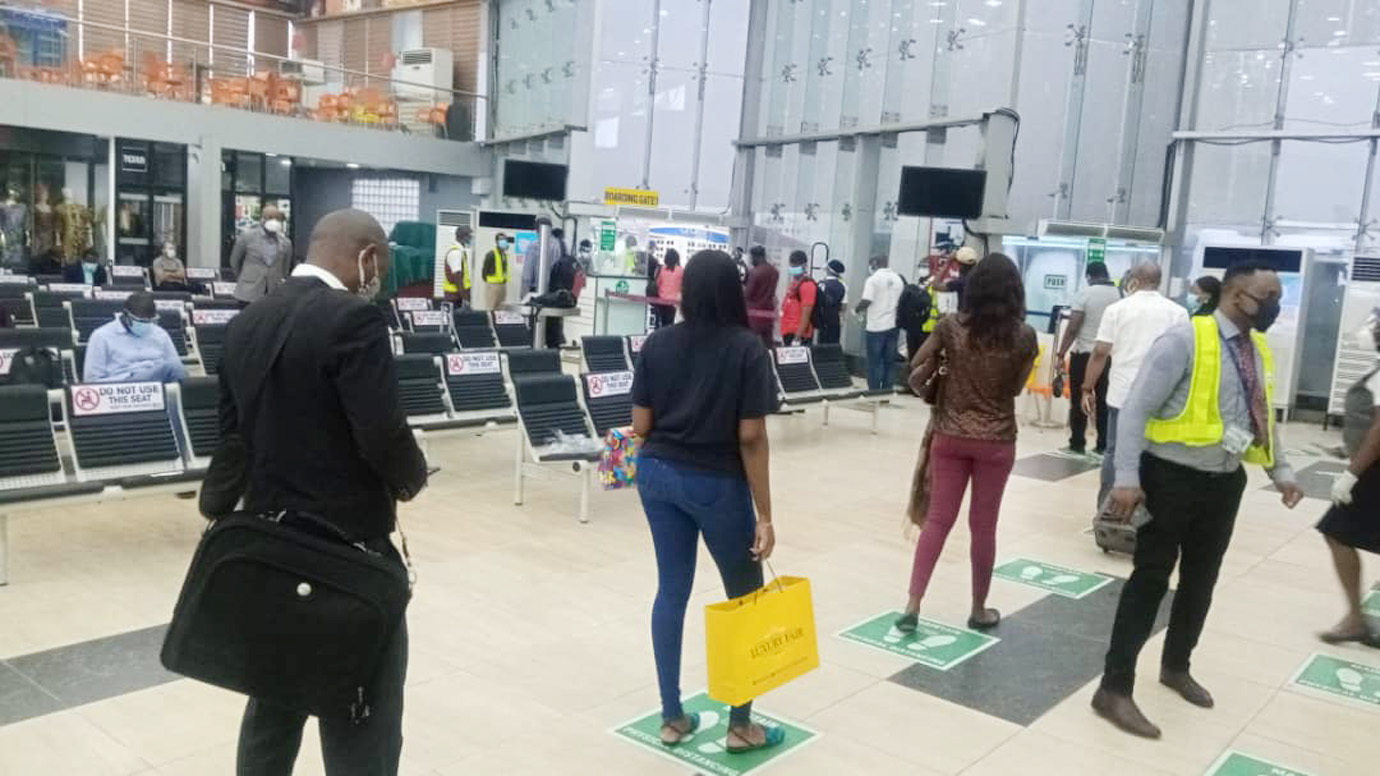Forget whatever you are being told officially — Nigerians are unable to seamlessly get passports because the contractors have not been able to source for forex from official sources and have had to resort to parallel market, TheCable can report.
Iris Smart Technologies Limited (ISTL), the wholly-owned Nigerian company that produces the passport, has been sourcing forex from the highly prohibitive parallel market to fund the production of passport booklets since the turn of the year.
This has led to the reduction in the booklets available to the Nigeria Immigration Service (NIS), sources have told TheCable.
ISTL, also known as Iris, won the passport production contract in 2003 in a competitive bid, defeating the Nigeria Security Printing and Minting Company (NSPMC or The MINT), a subsidiary of the Central Bank of Nigeria (CBN).
Advertisement
Iris has been solely financing the production of the passports since 2003 and has been remitting the revenue to the federation account, an official of the ministry of interior told TheCable.
The company has also overseen the transition from machine-readable to electronic passports (e-passport) over the years.
However, some presidency officials have been insisting that The MINT has the capacity to produce the booklets in Nigeria and “conserve forex”.
Advertisement
TheCable understands that apart from the many legal and technical complexities involved in terminating the contract with ISTL, The MINT does not have the capacity to produce the booklets in Nigeria and would need to print abroad as well.
Also, The MINT was planning to enter into a partnership with another Nigerian company floated by politicians, according to insiders at The MINT.
As a result of the political undertone, ISTL is unable to access forex at the CBN rate, leading to a severe shortfall in production.
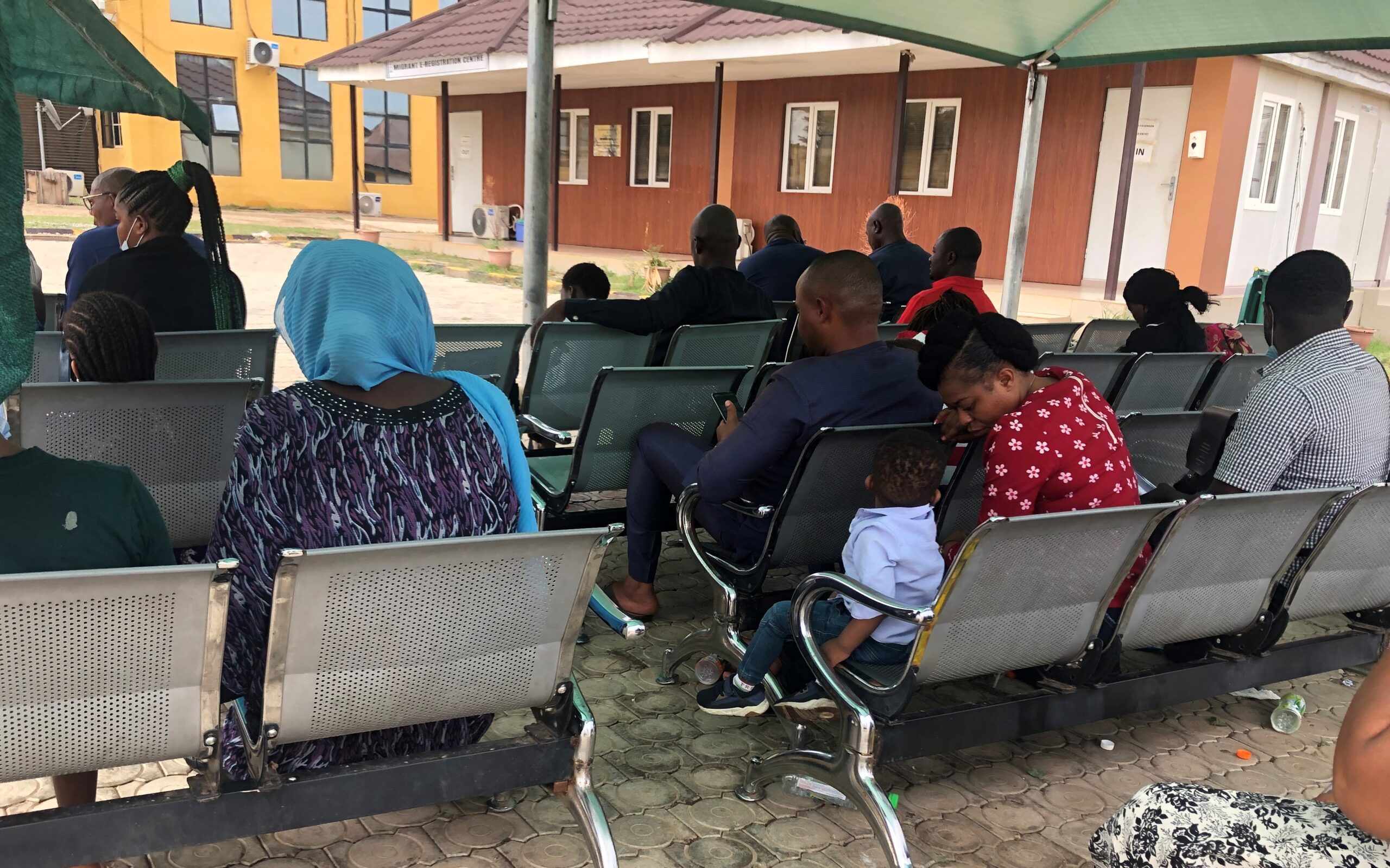
An official of the NIS told TheCable: “Contrary to what some people want the public to believe, Nigeria does not produce any of the booklet components, so they all have to be purchased from abroad. Therefore, the production of e-passport booklets locally in Nigeria does not conserve forex.
Advertisement
“All countries utilise forex to purchase e-passport components from different producers all over the world. Nigeria cannot be different. Over 90 countries buy their chips from a company in the Netherlands, over 160 countries buy their polycarbonate, passport covers, from producers in Germany, Saudi Arabia and USA, etc.
“Our case is worse as we do not produce even the lowest grade of paper – newsprint, much less the highest grade of security paper. The MINT still spends millions of dollars importing prepared security papers for the printing of our currency. No matter who produces the e-passport booklets, there will be need for forex, as over 90 per cent of the components of the booklet have to be imported. Thus, The MINT producing the booklets will not conserve forex.”
The official dismissed suggestions that Nigeria needs to print at home for security reasons.
“That is not true. Every country determines the security code for its passports. It’s like buying a safe from the market and saying your security is compromised. You determine by yourself what the security code for the safe should be,” he said.
Advertisement
AS OF LAST WEEK, ‘PRODUCTION OF BOOKLETS YET TO START’
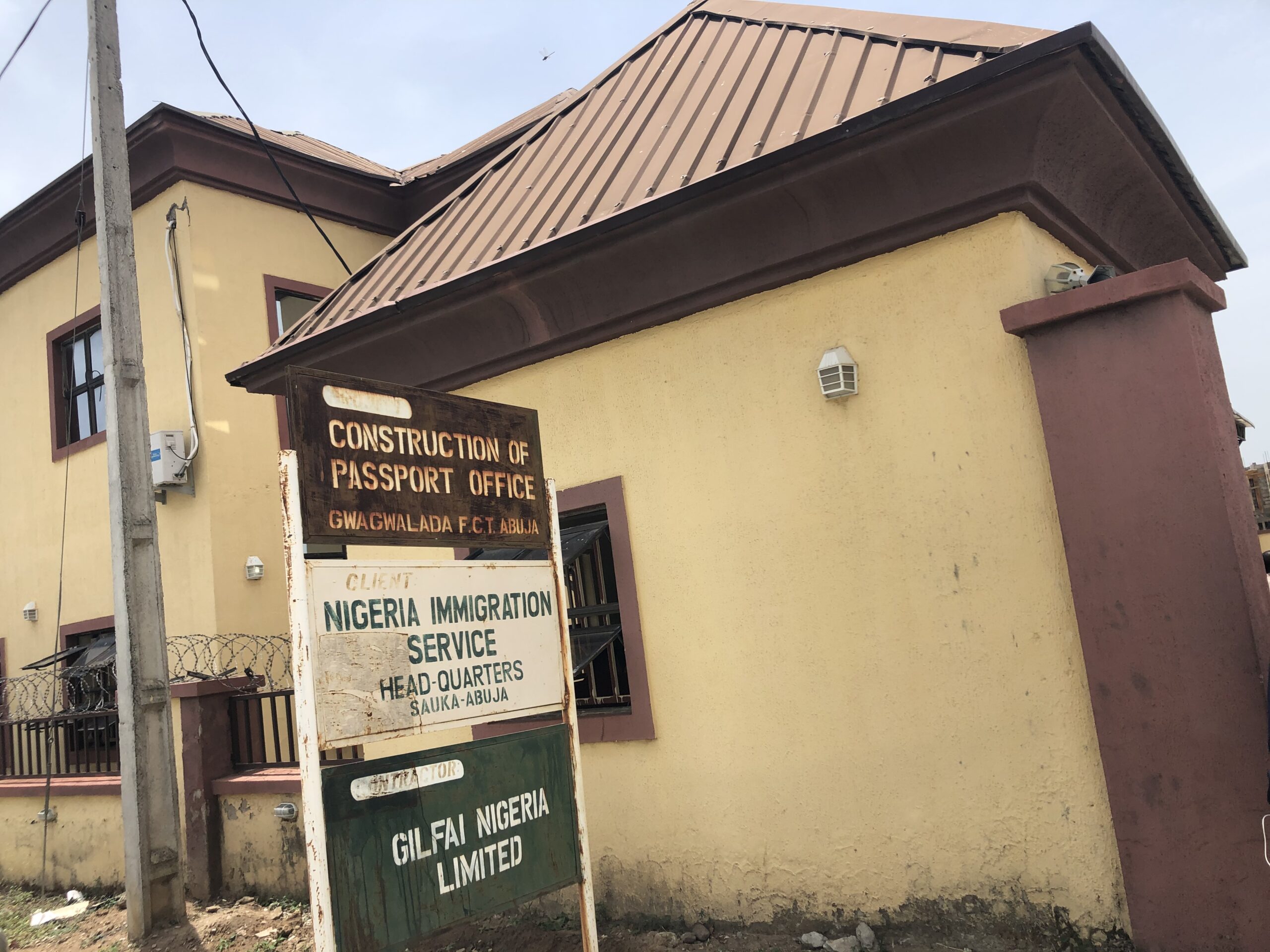
Since mid-March, the NIS has been under growing pressure after all its centres including the headquarters in Abuja ran out of passport booklets.
Advertisement
On March 31, Muhammad Babandede, NIS comptroller-general, announced to the excitement of many: “I am glad to inform you that booklets are now available and are being distributed to all our passport issuing centres.”
But contrary to his claim, some staff of the NIS at the various centres told TheCable that booklets are not available yet, with some even admitting that the production has not started, much less the document being supplied.
Advertisement
Last week, at the SERVICOM and data processing departments at the NIS headquarters in Abuja, officials struggled to explain to awaiting applicants that they have to wait for much longer before they could get their passport booklets.
A female official admitted that the production of booklets was yet to start, saying: “They have just started skeletal production. Tomorrow, probably, production will start hopefully. So, we are just waiting. They are taking them in batches. So, no matter what, two weeks may not be possible (to collect).”
Advertisement
It was the same tale at the passport office in Gwagwalada, also in Abuja, where Victor Ofili, an immigration official, told TheCable that even if booklets arrive now, “we have many people waiting.”
“We can capture you now but there are no booklets. As you can see, people are waiting,” he said, pointing to stranded applicants present at their office. “Anybody that will tell you that you will get your passport in one week… it is not possible.”
THE RESULTANT FRUSTRATION, PAIN — AND MISSED OPPORTUNITIES
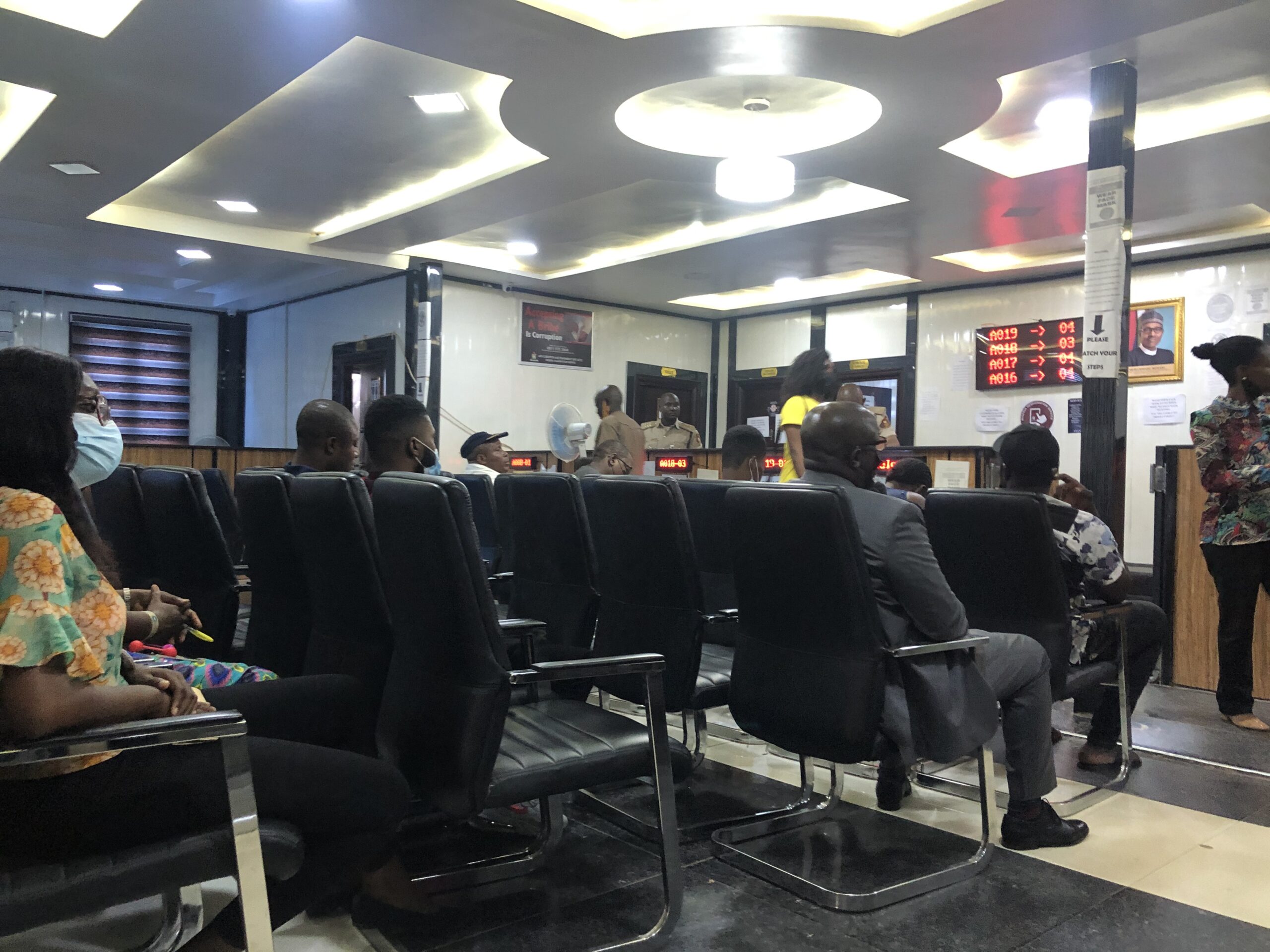
Across the passport issuing centres visited, TheCable met frustrated individuals who lamented the frustration and pain they have been going through to get their passport booklets.
As a result, some of them have missed life-saving opportunities, including for studies and work-related purposes.
At the NIS headquarters, a young boy who gave his name as Andrew complained that he has been “visiting and calling” the NIS office and its officials respectively, but “they keep saying is (his passport) not ready.”
“I just got an opportunity for a fully-funded engineering internship in the US but I have to get all my documents ready and my scheduled date for travel is fast approaching. I was told they will call me when the booklet is ready but for how long will I continue to wait,” he said.
The situation has forced many to dump the cheaper passports — the 32-page five-year booklet issued at N25,000 and the 64-page five-year booklet that costs N35,000 — for the 64-page 10-year booklet obtained for N70,000, which TheCable gathered is still in stock.
SCARCITY? NOT A PROBLEM FOR THE RICH WHO CAN PAY EXTRA N30K
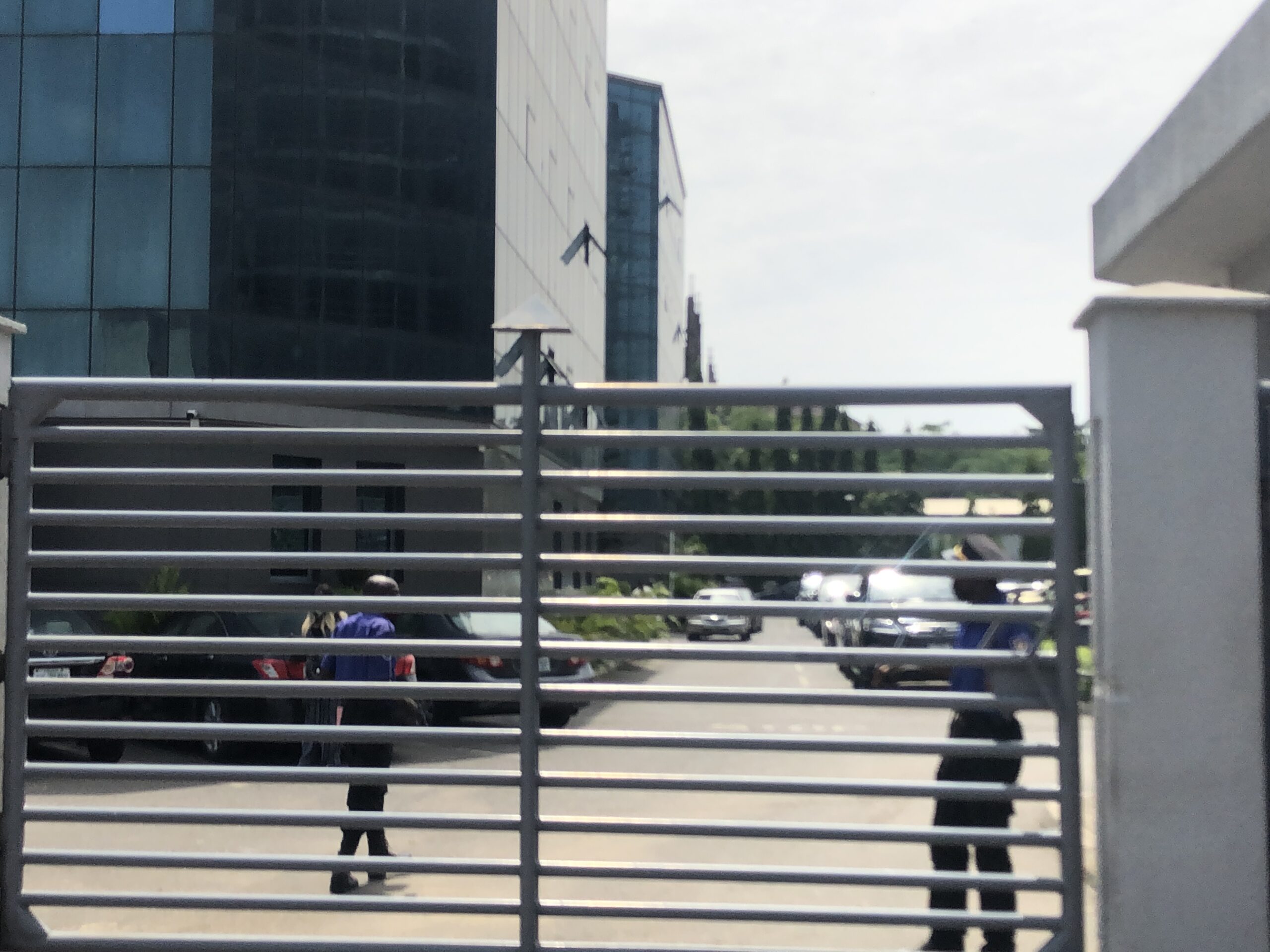
As the scarcity continued to bite harder on citizens, the federal government unveiled a “premium passport processing centre” in Abuja where Nigerians can get their passports within a maximum of 72 hours, with Rauf Aregbesola, minister of interior, saying that passports sought there will henceforth be “available in a maximum (of) 72 hours of a successful application.”
However, what the minister failed to point out is that such privilege is only an exclusive privilege for the rich. During several visits to the premium centre, TheCable observed how the passport is processed at ease for people willing to pay an extra N30,000 for the “premium” service.
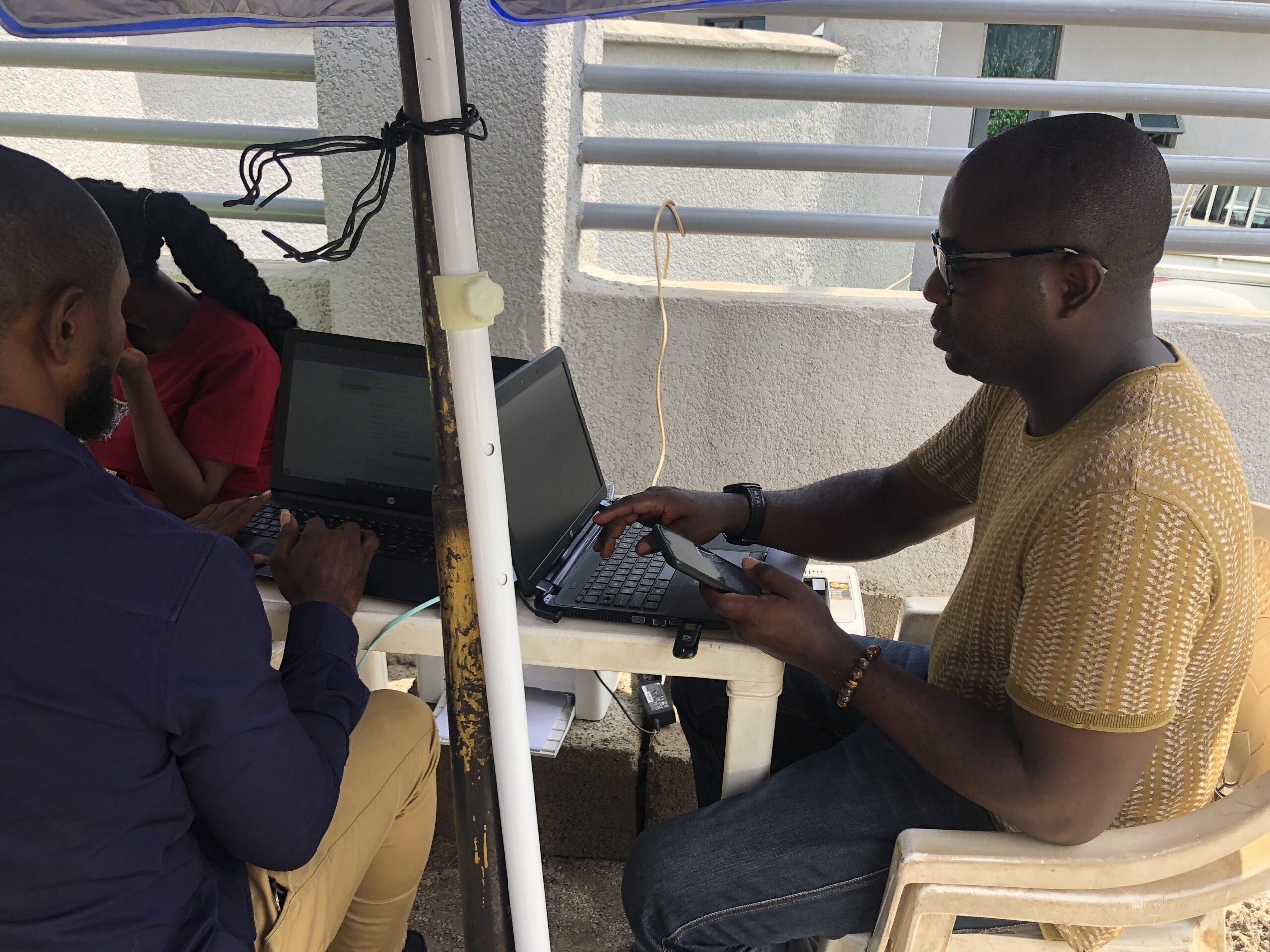
Applicants are required to pay the standard fee for the desired passport at a nearby registration point before they proceed into the premises for the remaining payment.
“The amount for premium is N30,000 and, if you can still do yours today, it doesn’t take up to 24 hours,” one of those involved in the payment process said.
CAN THERE BE AN IMMIGRATION SERVICE WITH NO BOOKLET SCARCITY CRISIS?
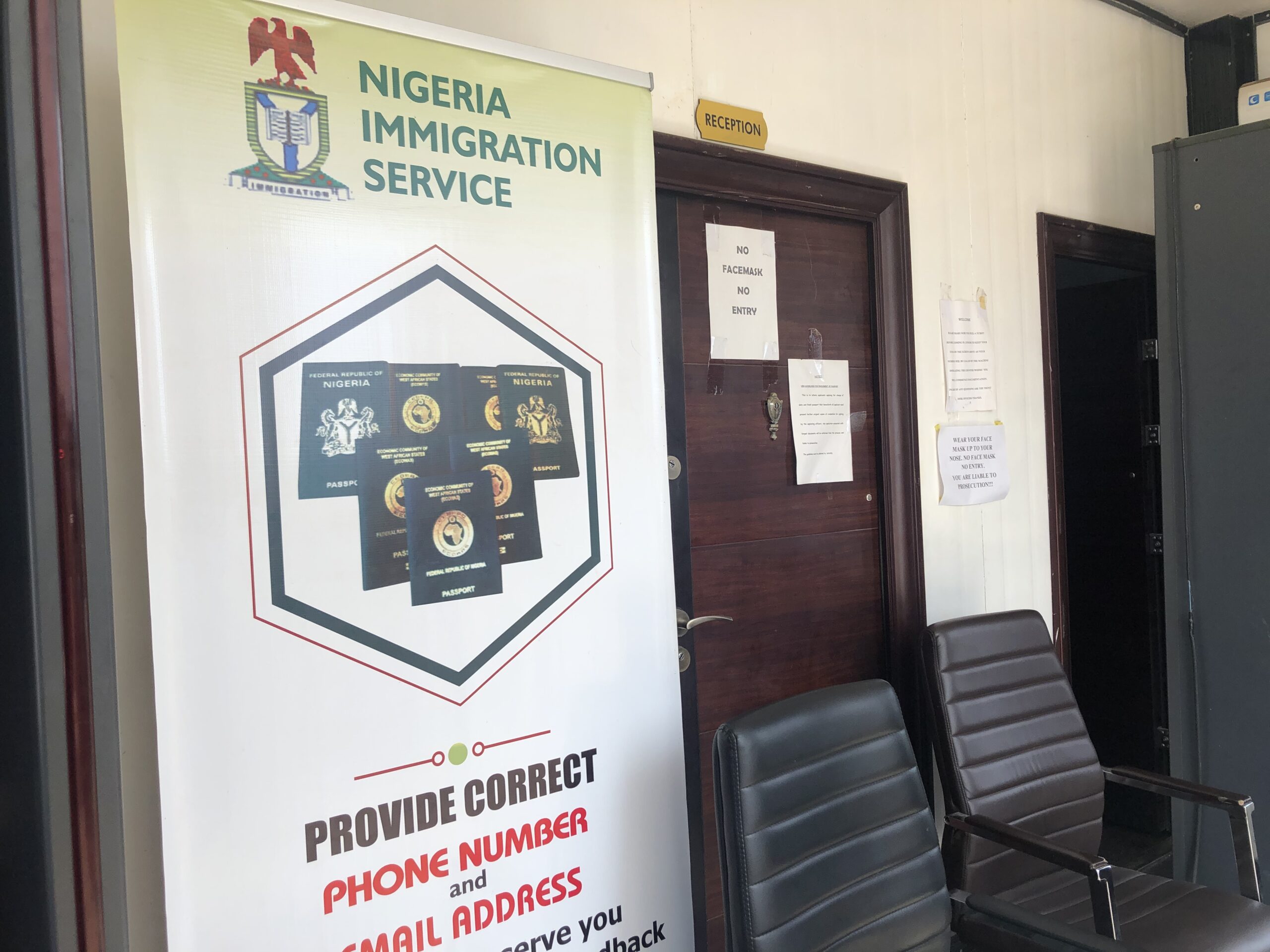
The scarcity of passport booklets has been a recurring challenge for the NIS for many years.
The situation has been so bad that in 2019, Babandede suggested that the corruption in the service was mainly because of booklets not being available sometimes.
In search of solutions, NIS said in April 2017 that it was exploring the local production of passport booklets as part of plans to ease the lingering scarcity of the document.
Sunday James, spokesman of the service, had told NAN that Abdulrahman Dambazau, then-minister of interior, gave the directive to also cut the cost of production.
Although he did not announce a timeframe, it is beginning to look like mere wishful thinking as nothing has been done four years down the line.
TheCable has contacted James for comment but has not yet had a response.
Add a comment

